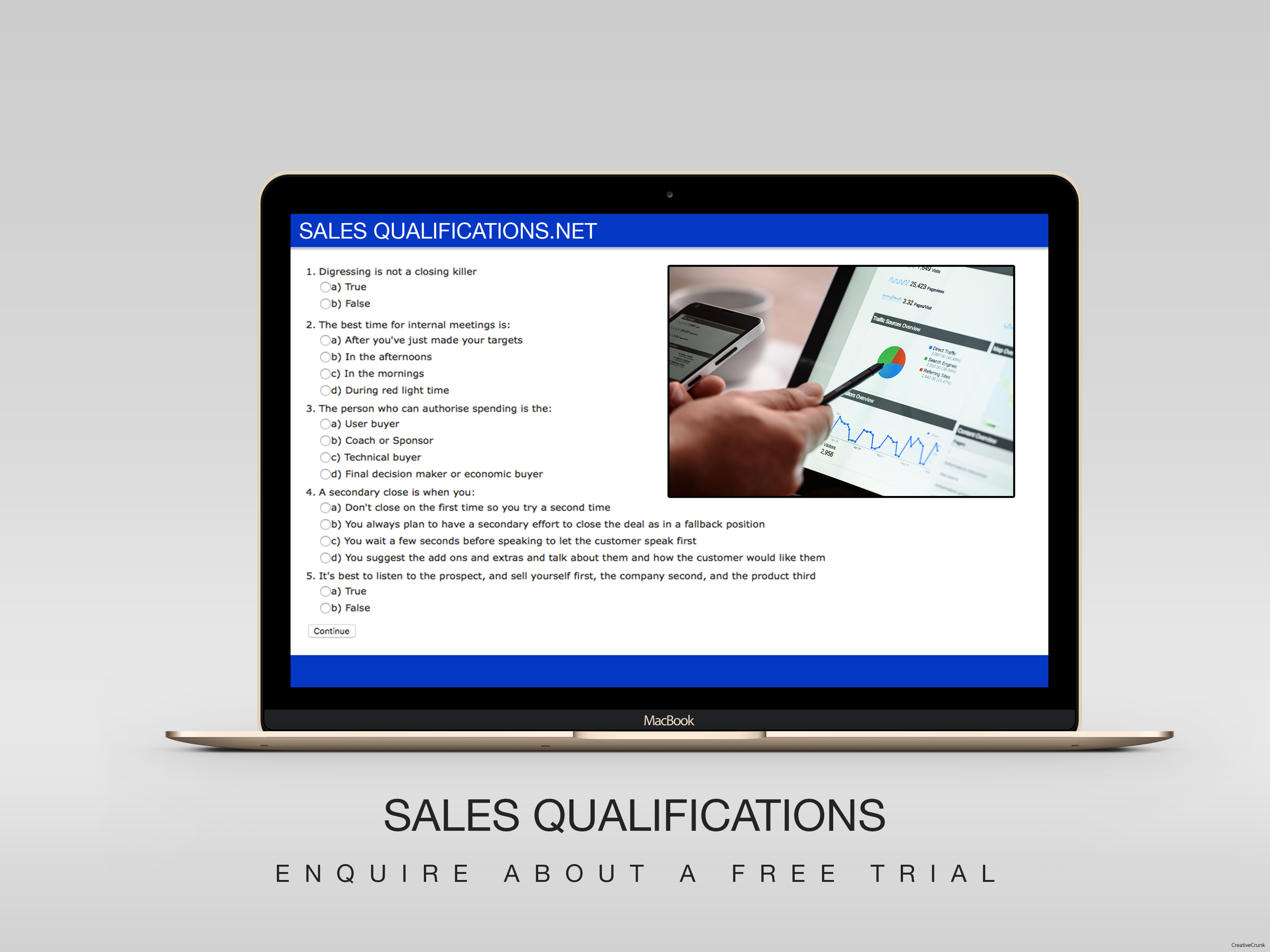Sales objectives enable us to have measurements for success and also to monitor our improvement. Sometimes we have our objectives given to us by our manager, but we should also have our own objectives which we keep privately so that we can monitor ourselves on the road to success.
Afterall, the road to success is always under construction.
Successful sales people set their objectives to meet the acronym SMAC. (Specific, Measurable, Attainable, & Compatible)
MEASURABLE
(Specific time, quantity, revenue, or tasks, etc)
The objective must be measure-able in time, units, money, or some other method. Otherwise, how will we know if we've ever achieved it?
COMPATIBLE
Both personal and company wide.
Objectives must be in line with company objectives, as well as, in line with the individual's personal objectives. (i.e. income)
© 2016. Sales Qualifications.net
Developed by Createch Studios


